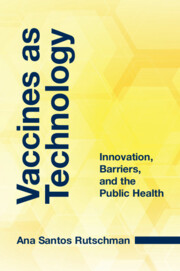
- Cited by 1
-
Cited byCrossref Citations
This Book has been cited by the following publications. This list is generated based on data provided by Crossref.
Kirkland, Anna 2023. Beyond Law as a Tool of Public Health: Vaccines in Interdisciplinary Sociolegal and Science Studies. Annual Review of Law and Social Science, Vol. 19, Issue. 1, p. 179.
- Publisher:
- Cambridge University Press
- Online publication date:
- April 2022
- Print publication year:
- 2022
- Online ISBN:
- 9781009129169


